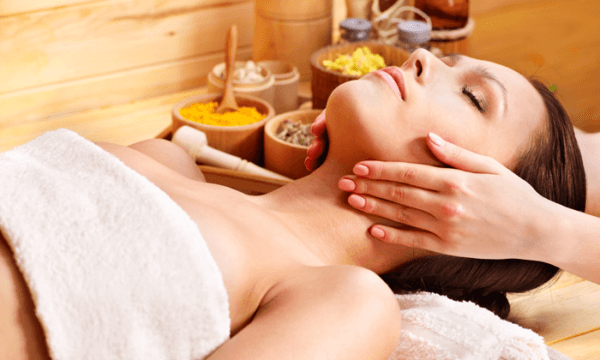Everyone is born with their own specific mix of life energies or doshas, your dosha is can be either Vata, Pitta or Kapha, which all have their own set of traits and impact everything from your skin to digestion and of course, your hair.
Ayurvedic hair care is built on the principle that the health of your hair is largely dependent upon the overall health of yourself. Imbalances in your digestive tract, stress levels and lifestyle can lead to an imbalance in hair behavior.
Through the implementation of simple lifestyle practices and the use of quality herbs, ayurvedic hair care stands to correct any imbalance in your hair dosha.
An individual’s basic nature and physical constitution (prakriti) depend on the most overpowering energies running through them. The same applies to hair type, leading to the next classification:

VATA HAIR TYPE
Vata dosha tend to have dry hair and scalps. The hair texture tends to be curly and can be easily tangled or unruly. The scalp is also prone to dandruff or itchiness, again as a result of an overall dryness. This hair type tends to grow rapidly and absorbs and retains a lot of moisture.
Recommended treatment: Massage the scalp regularly using warm oils (almond and sesame are suggested). Brush hair out post-massage, wrapping in a hot towel and rinse out anytime from 2 hours after, to the following day.
PITTA HAIR TYPE
Pitta hair type, characterized by medium thickness, soft texture, deep color, slight curls, and high-protein content. Pitta manes are oily. Hair is thinner in texture and flatter than vata, while the scalp can be easily irritated.
When your pitta dosha goes out of balance,premature graying or hair loss can be a common issue , bacterial buildup inside the hair follicles, scalp inflammation or redness, and hair loss become increasingly common.
Recommended treatment: Gently massage with coconut oil. Rinse after 30 minutes using cool water.
KAPHA HAIR TYPE
Kapha hair type is thick, voluminous, shiny, slightly oily and curly.The scalp is not dry and as a result, hair is naturally glossy. However, there can be a tendency towards dandruff.
Imbalance in the kapha dosha is associated with sebum overproduction, which invites the growth of dandruff-causing fungus. In such a case, your greasy scalp develops a lot of flaking and itching.
Recommended treatment: Massage the scalp vigorously with olive oil. Follow with a herbal cleanser wash.
AYURVEDIC HAIR CARE TREATMENTS
Herbal remedies can help improve your health. In addition to applying warm herbal oils before a hair bath, herbs can be included as part of:
scalp and hair masks
hot and cold hair rinses
Only a few simple herbs are needed to prepare a tea or hair rinse. Dry powders, flowers, leaves and herbs are some of the favorites in Ayurveda when it comes to hair care.
Green tea
This tea is warming and astringent Warm green tea is a good hair rinse for shiny, bouncy hair.
You can mix green tea powder with rose water to create an aromatic and stimulating scalp mask.
Neem
Is refreshing, antimicrobial, antibacterial and can help control dandruff.
Fresh neem leaves can be used to make a hot tea for hair or to rinse hair. Neem powder can be made into a paste with tap water and used as a hair and scalp mask.
Tulsi
Is considered warming and helps promote hair growth. Fresh tulsi leaves are ideal for a warm rinse, alone or mixed with green tea leaves.
Amla
Is high in vitamin C and is effective in eliminating dandruff. Add it to a hair rinse or mix it with tulsi leaves for an effective scalp mask.
Henna leaves
Can be used to make a paste to soothe a hot or irritated scalp.
More readily available in dry form, a henna paste, enhanced with fragrant and soothing aromatic oils, offers similar benefits.
Hibiscus
This flower helps eliminate scalp stagnation and can promote hair growth. It can be used in dry or powdered form and applied to the hair as a mask or as an ingredient in shampoo.
For appointments or more information, please contact us via WhatsApp at 407.617.9016.
We will be happy to assist you




1 thought on “HAIR TYPES ACCORDING TO AYURVEDA”
I don’t think the title of your article matches the content lol. Just kidding, mainly because I had some doubts after reading the article.